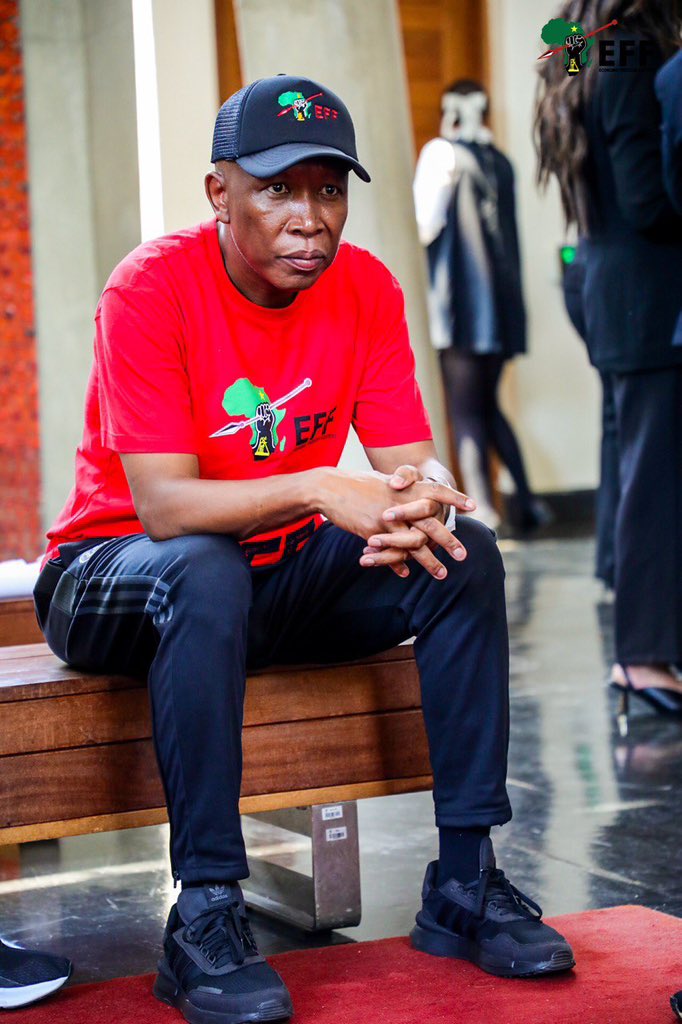By Simon Nare
The Constitutional Court on Tuesday heard a bruising legal challenge to overturn the National Assembly’s decision to dismiss the Independent Panel’s report on the Phala Phala saga.
This after the EFF requested the court to declare the National Assembly’s 13 December 2022 decision not to adopt the panel’s report on the Phala Phala saga, and to forego referring it to an impeachment committee, as irrational, unlawful and a violation of constitutional provisions.
The red berets also wanted the highest court in the land to issue a declaratory order that Rule 1291 of the Rules of the National Assembly was invalid and inconsistent with the Constitution.
EFF legal representative, Advocate Kameel Premhid, argued that as the parties presented their cases, that the Constitutional Court should focus on whether the National Assembly’s reasons for voting down the Independent Panel’s report could withstand legal scrutiny.
Premhid further argued that one of the reasons provided by then Justice Minister Ronald Lamola in the National Assembly that the panel, led by former Chief Justice Sandile Ngcobo, had misconstrued the threshold for sufficient evidence in concluding that there was a prima facie case for President Cyril Ramaphosa to answer.
“The EFF submits that over R10 million hidden in a couch is as problematic and controversial for a president as benefitting for unlawful upgrades up to his residents in northern KZN,” submitted Premhid.
Premhid argued that the National Assembly failed to fulfill its constitutional mandate to hold Ramaphosa accountable for the Phala Phala saga, citing flaws in the mechanism it applied to address the matter.
He further contended that ANC MPs exploited their majority to shield Ramaphosa, instructing members to toe the party line and vote against the report.
African Transformation Movement legal representative Advocate Anton Katz said Ramaphosa acted in bad faith in his conduct after he learnt about the theft of the foreign currency at his farm.
He submitted that the president should face an impeachment where he could explain himself where he got the money from.
“Look at what did he do after the theft was brought to his attention. What did he do before? What was he doing with the dollars in the couch? What was his explanation?” he asked.
Lawyers representing the president, the ANC and the National Assembly said in their argument that the Independent Panel had used the wrong test in determining whether there was a prima facie case and, therefore, the conclusion was wrong.
They argued that the panel relied heavily on the allegations of former national commissioner of correctional services, Arthur Frazer, who blew the whistle on the theft. They said Frazer’s allegations were riddled with rumours and were untested.
Representing Ramaphosa, Advocate Geoff Budlender submitted that the Independent Panel only had an advisory role to the National Assembly and had no power to instruct the house to impeach.
During questioning by the justices, Budlender admitted that even if the report was deemed flawless, the National Assembly could have come to the same decision because it was only the house that decided whether or not to impeach the president.
Representing the ANC, Advocate Tembeka Ngcukaitobi argued that there was confusion in the panel report’s analysis, particularly in distinguishing between sufficient evidence and a prima facie case.
Ngcukaitobi noted that the panel itself admitted to lacking enough information, asserting that it was the correct decision not to impeach the president based on incomplete evidence.
Justice Owen Rogers argued that there was a distinction between substantive evidence and prima facie evidence.
He stressed that he was seeking clarity on the term “sufficient evidence,” as the MPs’ decision not to support Ramaphosa’s impeachment was based on the alleged absence of such evidence.
“I would have thought that, given the panel recognising the momentous nature of impeachment proceedings and its role between the motion and the impeachment committee, such proceedings are not embarked upon lightly. When the panel refers to whether there is sufficient evidence for the president to answer, it must mean sufficient evidence to justify the president being required to account for it before an impeachment committee. That is exactly what sufficient evidence should mean,” said Justice Rogers.
“It does not mean sufficient evidence to convict, nor does it need to meet the same standards of admissibility required during an impeachment inquiry. It simply means there is enough evidence to warrant the president of our country answering it before the committee.”
Chief Justice Mandisa Maya reserved judgment.
Meanwhile, scores of EFF party members, led by party leader Julius Malema, marched to the Constitutional Court to watch the proceedings.
INSIDE POLITICS

